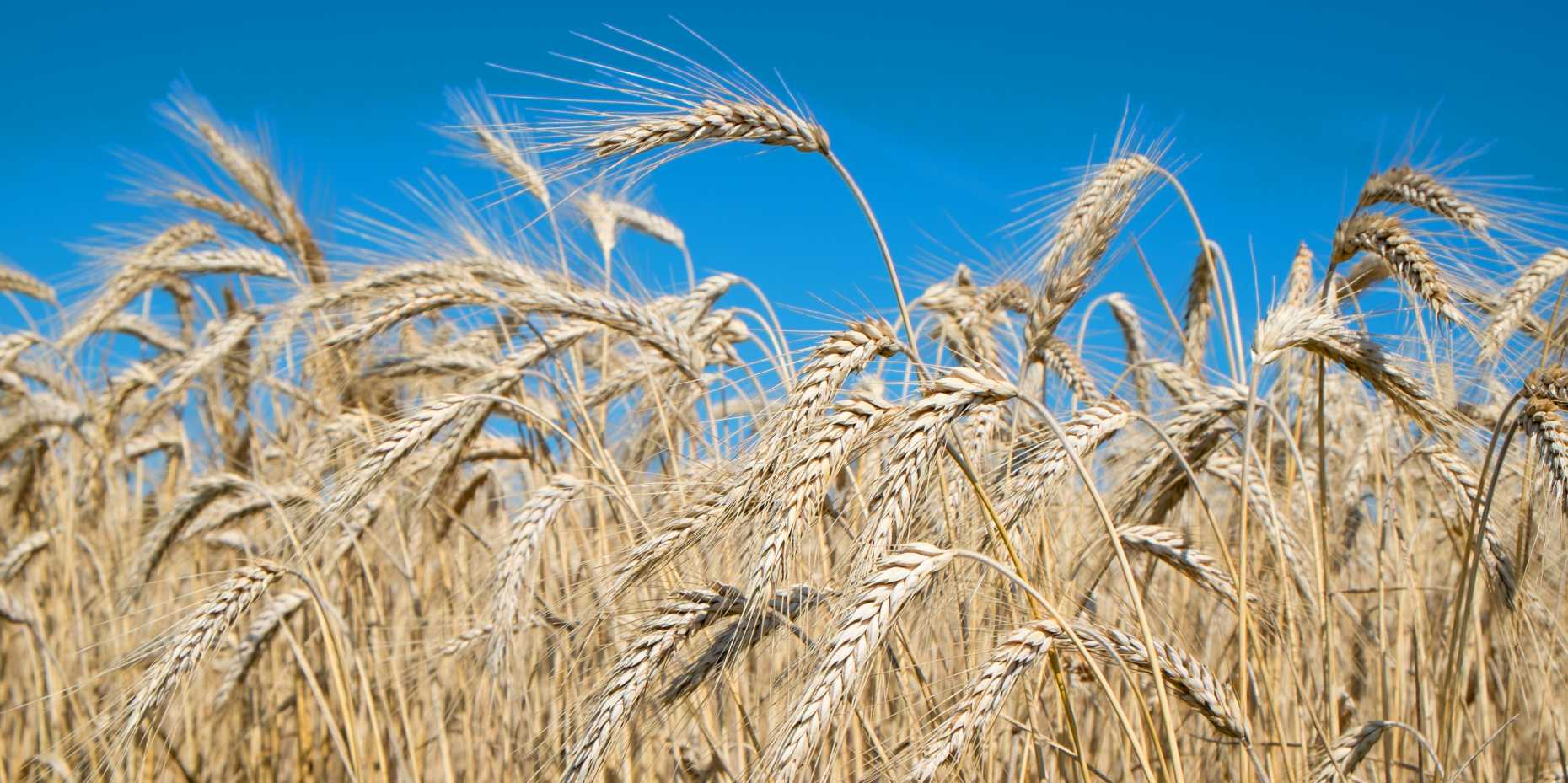Swiss agriculture also depends on research progress
Wilhelm Gruissem argues that modern, effective breeding methods are needed to make our agriculture more ecologically friendly and resilient.
Drought, heat, lost crops, billions demanded by farmers: the hot summer of 2018 was yet another warning sign that climate change is posing increasing challenges to agriculture. According to estimates by the UN’s Food and Agriculture Organisation (FAO), more than 800 million people worldwide still suffer from hunger – even though the world produces enough food to feed everyone.

In Switzerland, we meanwhile enjoy a diverse, healthy and affordable food supply, supported by imported agricultural products, which make up nearly half of the food we consume. The Food Sovereignty and Fair-Food Initiatives that are on the ballot seek to uproot Swiss agriculture. They demand the promotion of organic agriculture and a fair national agricultural sector, the same rules for imported agricultural products, and the preservation of the Swiss quality of life, which they want to cement in the Federal Constitution. If the Food Sovereignty Initiative were adopted, a complete ban of modern agricultural breeding methods would be introduced via the back door.
Risk of falling behind
Approval of these ballot proposals would catapult Swiss agricultural sector back into the 19th century and deprive it of the opportunity to use scientifically proven breeding methods. Closing national borders is not helpful either. Because if we like it or not, Swiss agriculture does not end at our national borders. We share the climate, crops and food production with the rest of the world. Switzerland has to import more than 50 percent of its high-protein animal feed. How can we speak of “food sovereignty” when facing these facts?
The real problems are elsewhere: we must make Swiss agriculture fit for the future. We must also make a fair contribution to the global food supply and leave an intact environment to the next generations. A ban of technology applications does not achieve that. We need both ambitious farmers keen to experiment as well as innovative and internationally competitive research that can use modern breeding methods for agricultural research. But, who wants to work on ideas that can never be used? Finally, we need an open-minded society that does not fall for romantic views of quality of life.
Need for ecologically sound crops and livestock
At some point, fresh water will become scarce even in Switzerland. Already now fresh water is not always readily available during extended periods of drought. Although Swiss farmers can produce the required yields by using fertilisers and pesticides, this is harmful for biodiversity, surface water and our drinking water. The ecological footprint of our agriculture – including the organic agriculture – is simply too large.
?Without modern breeding and development methods, we will never achieve agricultural breakthroughs that benefit our society and environment.?Wilhelm Gruissem
In future, we will depend on crops that can withstand drought, heat, pests and pathogens, and produce the same yields with less fertiliser. In China, a genetically modified variety of rice has been developed that requires less nitrogen fertiliser in the soil, which benefits the quality of drinking water. The same technology could also be used for grain crops such as wheat, barley and maize, all of which are grown on a large scale in Switzerland. Thanks to new methods, such as the “gene scissor” (CRISPR-Cas), new varieties of pest and drought-resistant crops can be bred with utmost precision and thus avoiding non-specific breeding methods we used in the past, such as chemicals or radioactivity (see also this blogpost). Among livestock, the genetically modified Enviropig that has been developed in Canada and China can utilize feed phosphate 50% more efficiently, thus reducing phosphate in animal waste, which could also be of advantage for Swiss agriculture. Such advances achieved with modern breeding methods help the environment and thus reduce the ecological footprint of agriculture.
Threat to agricultural innovation
Without modern breeding and development methods, we will not achieve agricultural breakthroughs that benefit our society and environment. A ban of these methods, which is explicitly demanded in the Food Sovereignty initiative and implicitly in the fair food initiative as well, would make our agricultural sector dependent on technological progress elsewhere. Our national crop research would effectively come to a halt. Today, Switzerland is a global leader in agricultural research and development. Scientists at Swiss universities develop solutions for agricultural and nutritional challenges that find applications all over the world. Adoption of the Food Sovereignty Initiative in particular would be a devastating for Switzerland’s status as an internationally leading research location and for agricultural innovation. We need both, however, if we want to be fit for the future.
This text was first published in modified form as an independent article in the NZZ am Sonntag. It was co-authored by Wilhelm Gruissem and external page Beat Keller, Professor of Molecular Plant Biology at the University of Zurich.